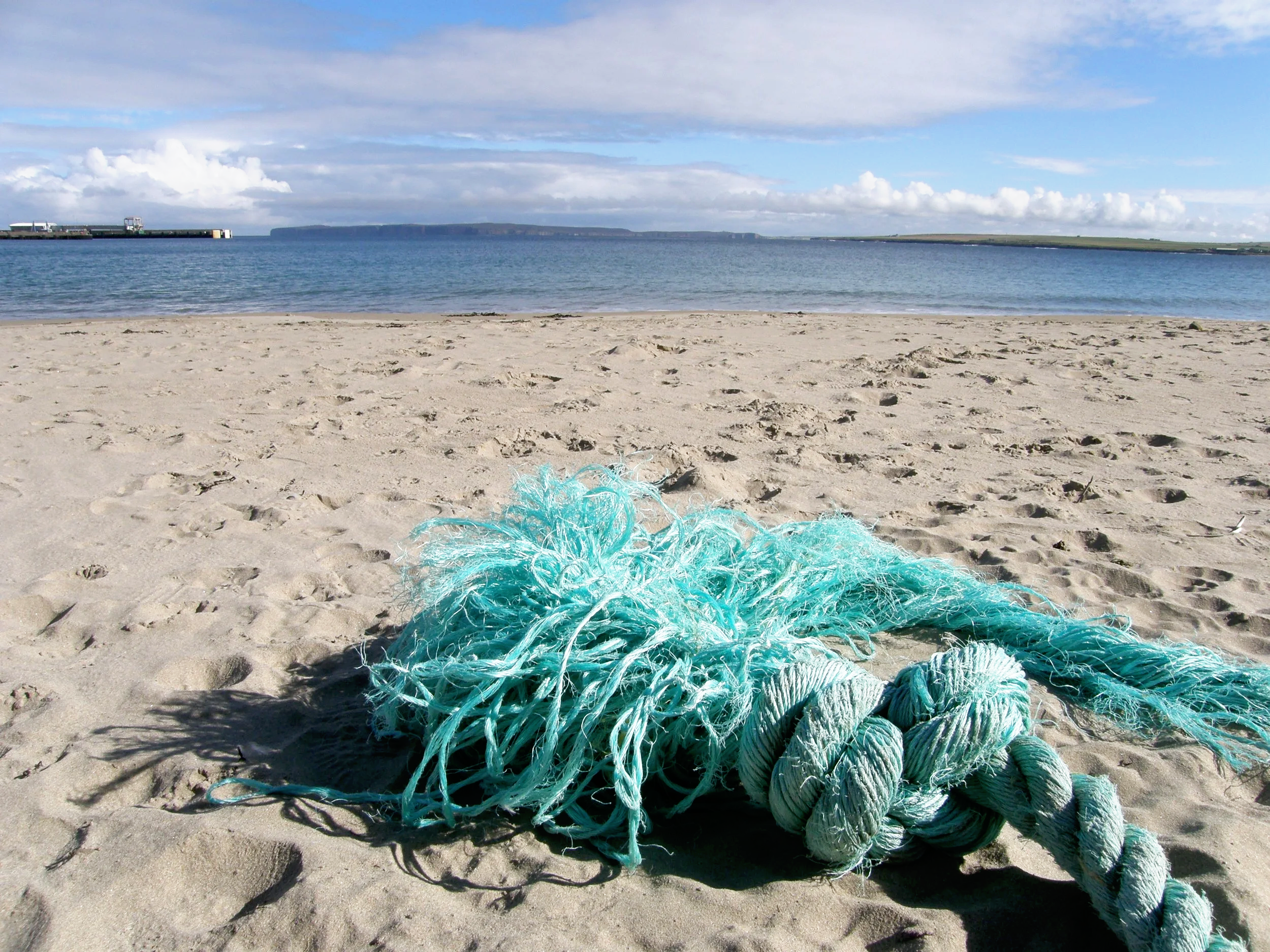Research Paper
Exploring the removal of flame retardants and chlorobenzenes by plastic-based materials
A new paper led by Dr Huiyi Zhang, completed as part of his PhD at the Environmental Research Institute (ERI), demonstrates that discarded polypropylene (PP) ropes, a common component of fishing gear and marine debris, can be upcycled into effective adsorbent materials for removing persistent organic pollutants from water. The article is published in Chemical Engineering Science and co-authored by Dr Szabolcs Pap, Dr Mark Taggart, Dr Neil James, Dr Kenneth Boyd, and Prof. Stuart Gibb.
The team shows that waste PP ropes, after simple surface treatment, act as low-cost sorbents capable of capturing flame retardants and chlorobenzenes from aqueous solutions; a mild polydopamine (dopamine-based) modification in particular improved removal performance, pointing to an accessible route for turning problematic waste into useful remediation materials.
Abandoned and lost fishing gear (“ghost gear”) and rope-like plastics are a significant part of marine litter, and repurposing them into functional materials fits squarely with circular-economy goals (keep materials in use, reduce pollution and demand for virgin feedstocks). This study therefore links practical pollution mitigation with value-adding reuse of hard-to-recycle plastics
Read the full paper here: Exploring the removal of flame retardants and chlorobenzenes by plastic-based materials

